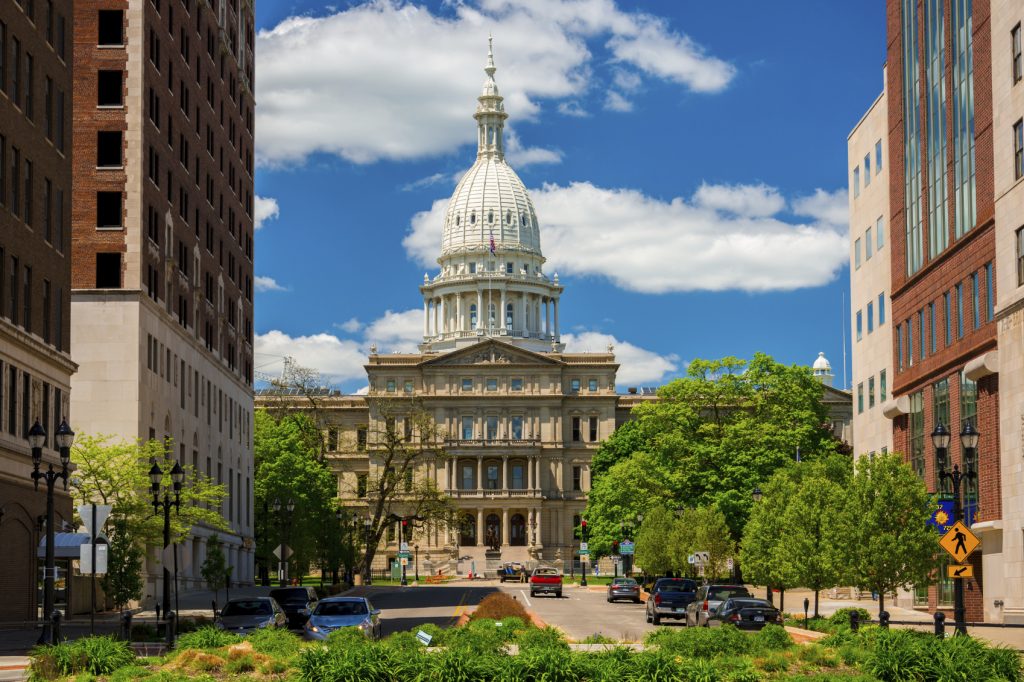
A conversation between MRA’s VP of Government Affairs, Andrew Beardslee, and MRA’s VP of Communications, Vic Veda:
Legislative advocacy is at the heart of what we do.
It plays a crucial role in shaping the policies that directly impact the retail industry. Retail leaders need to be actively involved in legislative efforts and do their part in shaping the future of the industry. Learn more about the importance of engaging with legislators to ensure that the voices of retailers, big and small, are heard during the policymaking process.
What is legislative advocacy in the context of the retail industry, and why is it essential?
Retailers feel the impacts of legislation, so it’s important that we have a say in the process. Legislators have to make decisions about every industry, whether or not that industry is at the table. Business, healthcare, technology, infrastructure, environmental impacts, and more. They work on a wide variety of issues, they can’t be experts in everything. When legislators have to make decisions that impact the retail industry, it’s in retail’s best interest to be at that table.
What are the primary goals of MRA’s (and retail organizations’) engagement in legislative advocacy?
We focus on advancing public policy that is friendly to retail. But there’s value in building relationships just for the sake of having those relationships, too. Our advocacy puts a face to an issue and helps legislators think of that person/ human as they make policy decisions.
How does legislative advocacy differ from public relations and awareness efforts?
Legislative advocacy is specific to the legislative process. Its specific messaging is tailored to the legislative audience and process. Public relations targets a more general audience and is important in raising awareness about issues that impact retailers and small businesses, and can help generate public support on key issues.
How do you educate legislators about issues affecting the retail industry, especially when they may not have a deep understanding of the sector?
Good advocacy is a mix of data and storytelling. We share examples from their district that highlight real-world impacts and support these examples with data, and that hits home. The ability to put a face to an issue and share what it will actually mean is important, just as important as the data.
How do retailers, particularly smaller businesses, get involved in legislative advocacy efforts?
MRA’s Capitol Day is a great way to directly engage with state legislators. MRA can even help schedule meetings. We host this event because it’s important. But, you don’t have to come to Lansing to get engaged! Bring your rep to you and show them what you do. Invite your legislator to your store for a visit. Engage in some good ol’ grassroots advocacy – send an email, send a letter, speak up. Legislators WANT to hear from their constituents.
Why should retail leaders care about legislative advocacy, especially in today’s fast-changing political landscape?
The legislature cares about (and impacts) you whether you like it or not. You might not be thinking about politics, but politics is thinking about (and impacting) you. We have the freedom to get engaged and should take advantage. It’s your opportunity to shape the future of retail. It’s to your advantage to take advantage.
Have questions about legislative advocacy and how to get involved?
Reach out to MRA’s VP, Government Affairs, Drew Beardslee at abeardslee@retailers.com to learn more and get engaged in our advocacy efforts.
